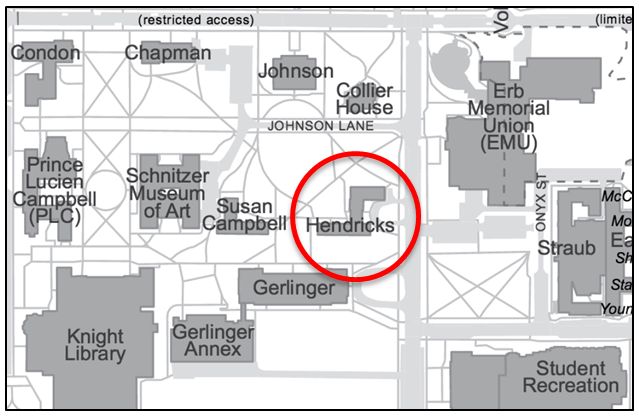|
WGS 199 (17368) Download the course policies and syllabus (PDF).
"Fandom, after all, is born of a balance between fascination and frustration: if media content didn't
fascinate us, there would be no desire to engage with it; but if it didn't frustrate us on some level,
there would be no drive to rewrite or remake it."
|
GEORGE LIPSITZ in "The Case for Studying Popular Culture" argues that "the messages of popular culture circulate in a network of production and reception that is quite serious." This class will take up the challenge of reading, exploring, critiquing, even creating popular culture through the lenses of scholarship, television, film, and everyday media. Specifically, we will look at the words, works, and fandoms of Joss Whedon--including Buffy the Vampire Slayer, Firefly, Dr. Horrible's Sing-Along Blog, Much Ado About Nothing, The Avengers, and Marvel's Agents of SHIELD. Given that Whedon has been praised and criticized for his representations of women and characters of color, this class will unpack and analyze the intersections of cultural formations like race, gender, class, nation, and sexuality in both primary texts and fan cultures. A REQUIREMENT for this class is a well-developed curiosity and a willingness to explore and interrogate interdisciplinary lines of inquiry. Our class will be organized around a survey of texts engaging scholarship, media, and popular culture. This class will take up everyday culture as critical practice, explore what it means to close read and think critically, and how popular culture can be deployed as theory, as dramatizing the concerns, wonders, struggles, and politics of lived life and experience. This class will spend the semester reading, thinking, watching, discussing, researching, playing, and writing about various narratives and how and what these texts argue, reveal, narrate, hide, perpetuate, and complicate the world we live in. SPECIFICALLY, our course goals include:
• We will develop and demonstrate a familiarity with a range of texts, terms, and theories of the study
of fandom and popular culture.
WE WILL spend the quarter asking and addressing difficult, challenging,
and sometimes discomforting ideas, questions, and topics, focusing on different identities, bodies, histories,
desires, experiences, and even struggles and violences. Whether on the page, screen, on campus, or in the
community, we will explore and engage multiple perspectives, levels of familiarity with the material, and
heady and heartfelt responses. In other words, our class will be a safe, respectful, but not necessarily
comfortable space. While pushing boundaries and comfort zones are essential to critical thinking, making
connections, and intellectual and personal freedom, see me with concerns and queries, for reasonable
accommodations, and for further resources on campus.
|
"I think it's always important for academics to study popular culture, even if the thing they are studying
is idiotic. If it's successful or made a dent in culture, then it is worthy of study to find out why."
Required Course Texts & Materials
• WGS 199 Course Reader (available at The Duck Store) |
|
Course Requirements
Presentation (10%) Download the course policies and syllabus (PDF).
|
Requirements & GradingYour grade should not be the sole exigence or motivation for this class. It is the hope of the course that you walk away from WGS 199 with something more. Find some pleasure and some edification and some knowledge from this class (or any class really) and success is usually not far behind. With that in mind, your grade will be a reflection of engagement, effort, close reading, critical thinking, writing, and participation. Critical Context & Question Presentation (10%) You will be a required to sign up for an oral presentation individually or in small groups. For your presentation, you will read and watch the texts assigned for a particular week, generate a critical question or two, and get class discussion started for the day. Outstanding presentations will make connections between the theoretical readings, the week's media text, and the course goals. A short single-spaced half-sheet or 1-page handout copied for the whole class is encouraged. Presentations are 4-6 minutes, may include media, and each presenter must have a speaking part. Critical Response Papers (50%) The majority of the writing you will do for this class is in the form of short, critical, analytical response papers. These single-spaced, one-page writings serve as reactions to, close readings of, analyses of, and articulations of the texts and connections you see, read, and talk about in class. These responses are more than just summaries or personal reactions and will be graded on clarity, focus, coherence, critique, and your ability to concisely formulate arguments. You will be required to generate a response paper approximately every week for a total of 6. See the critical response paper prompt for more details All response papers are submitted electronically through Canvas. Critical Review (10%) You will be required to write a short, 500-750 word, single-spaced critical review of a text not covered by the course that you believe fits the critical, theoretical, and intellectual stakes of this class. You will locate a text, close read the text, and generate an academic critique and assessment of the text's value for study. In other words, what text might you include in a class like ours? You must have your text approved by the instructor. The critical review will be turned in and published on the course blog and is due by the last day of instruction. Participation and Preparedness (30%) Preparedness and participation forms a large component of your final grade. It is essential that you prepare for class, attend class, and participate. Missing class may seriously compromise your ability to do well in this class. Moreover, negative participation will hurt your participation grade. Participation is determined by 1) your respectful presence in class and interactions with me and others, 2) your willingness to discuss, comment, and ask questions, 3) your preparation for class, which includes bringing required materials to class and doing all of the assigned reading for class, 4) your engagement in group work, and 5) your care and use of the class Canvas--henceforth called the "class blog"--bookmark the address, check and comment regularly, think of the blog as an extension of class: |
"Imagination is more important than knowledge."
"I've overheard your theory 'nostalgia's for geeks' / I guess sir, if you say so, some of us just like to read /
One second I'm a Koons, then suddenly the Koons is me / Pop culture was in art, now art's in pop culture in me."
|
|
|
Attendance
Attendance is required. If you are absent, you miss the explanation of an assignment, the discussion of a reading,
the chance to participate, and overall, the class as a community of learning. Also, you are expected to be in class
on time. Class will start immediately at the appointed time. In the first minutes of class I may make important
announcements, establish the agenda for the class meeting, begin immediately with an important lesson, or field
questions. If you come in after we start class, even by only a few minutes, you are late you will be marked as such.
Chronic or conspicuous attendance problems will negatively affect your overall participation grade for the class.
Moreover, absences for more than 9 class session (50% of class time or more) will result in a failing grade regardless of reason.
If you know you are going to or must miss class, please let me know (via email) as soon as possible and make any
necessary arrangements. When you do miss class, always find another student to get class notes or see me during
office hours in order to make up missed work in a timely manner. You are always responsible for all material
covered during your absence.
|
|
|
Response Paper Formatting 1) 1" margins top, bottom, left, and right on each page. 2) Single-spaced block header with your name, date, course, my name. For example:
Student Name 3) Response (week) number and title (e.g. Week #2: Race in The Great Gatsby). 4) Response papers are single-spaced and can be in block paragraph format. 5) Standard Times Roman Font, 12 point only. 6) Correct MLA citation and bibliographic format. Bibliography if necessary. For further details, see the response paper prompt assignment sheet. |
Assignment FormatAll papers must be typed or produced on a word processor. All documents should be saved in Microsoft Word format; if you do not have access to Word, then save your documents in PDF or Rich Text Format (RTF). All papers must follow the manuscript format outlined by the assignment. All papers must use MLA citation and documentation conventions. All papers must be neatly printed (in black), single-sided, stapled in the top, left-hand corner if necessary, and not be three-hole punched. Papers that do not follow these format guidelines will not be accepted. They will be returned unread to you. Papers will be regarded as late until they are resubmitted in the proper format. Response Papers and the Critical Review have different manuscript guidelines detailed by their assignment prompts. Always make a backup copy of every paper you turn in, lest you be one of the unhappy people whose paper is eaten by the computer. You may even want to take the precaution of e-mailing your paper to yourself as an attachment at least a couple of times during the drafting process and certainly BEFORE you exit the document for the last time and leave the computer. This way, even if you lose your flash drive or your paper gets mysteriously erased, you still have a copy in your e-mail files.
Evaluation RubricOver the course of the semester, your assignments will receive feedback and comments that will identify what you are doing well and what still needs improvement. Your grades assess your fulfillment of the assignment, the quality of work, detail, analysis, and argumentation, overall effort, and finally, style, polish, and risk taking. Consider the following evaluation rubric as signposts or a kind of legend to your progress and evaluation:
• Outstanding (A/A+): Offers a very highly proficient, even memorable demonstration
of the trait(s) associated with the course or assignment goal(s), including some
appropriate risk-taking and/or creativity. |
Late Assignments All assignments must be done completely and turned in on time. Late assignments will be penalized half a grade for every day that they are late. So, if your essay is late by one day and you received a B- for your work, then your final grade would be a C+. Moreover, I will not comment on late work. However, you still need to complete late work or you will receive a zero. If you miss class on the due date of a paper, you must notify me and make arrangements to get the paper to me as soon as possible. Unless previously arranged, I DO NOT accept assignments via email. Remember that a paper has not been officially handed in until it is in my hands. Never turning anything in late is always the best policy. |
|
Contact Ed
Office:
Download the course policies and syllabus. |
Finding HelpMy office and office hours are listed in the left sidebar. I am available during that time and by appointment to help you. I encourage you to come see me early in the semester even if it is just to talk about the class, about the assignments, or about school in general. I may ask you to meet with me when I think a conference would be useful. My office is located on the third floor of Hendricks Hall (southeast of the EMU), Room 322. See http://map.uoregon.edu/.

I am also available electronically by email and the course blog. Email and the blog are the best means of contacting me. I will do my best to answer your emails and blog posts, usually within twenty-four hours. If there is an emergency and you need to reach me, please contact the main English office in Sitterly 108. Furthermore, when time permits, I will supplement my office hours with virtual hours via AOL Instant Messenger or Google Talk (nickname: EDagogy); if I am logged in, during reasonable hours, you are more than welcome to discuss the class or ask questions. Please, when you initiate an IM conversation for the first time, please identify yourself to me; also, be patient because my responses may not be immediate. You can find additional writing and academic help at the Teaching and Learning Center on campus, a good resource for this class and other classes. The TLC is located in 68 Prince Lucien Campbell (PLC) Hall and offers a variety of services including help with reading, papers, brainstorming ideas, and research. See http://tlc.uoregon.edu/ to make an appointment and for more information.
Further resources, both on- and off-campus can be found on the Links page of the course website:
http://www.edmondchang.com/courses/199/links.html.
|
Learning (With) TechnologyUnless you have an official accommodation, the use of technology in our classroom is a privilege, not a right. Mobile devices like phones, media players, and cameras should be off and put away. Computers and tablets should be used for note-taking, in-class work, and readings only. Print is generally preferred for course texts and readings, but full-size e-versions are acceptable provided the student is able to readily highlight, annotate, and index. Finally, be conscientious and respectful in the use of the course website and social media and post no material from class to the internet or non-class sites without explicit permission from the instructor and the class. Keep in mind these three rules: 1) Use the Right Tool for the situation and the task--keep it simple and elegant, 2) Practice Best Practices--it must improve or enhance your learning, 3) Be a Good Neighbor--it cannot distract or detract from others' learning. Inappropriate use and abuse of technology in class will result in the taking away of technology privileges for the offending student and/or class as a whole.
|
|
|
Academic DishonestyAll students are required to uphold the highest academic standards. Plagiarism, or academic dishonesty, is presenting someone else's ideas or writing as your own. In your writing for this class, you are encouraged to refer to other people's thoughts and writing--as long as you cite them. Many students do not have a clear understanding of what constitutes plagiarism, so feel free to ask questions at any time. For our class, plagiarism includes:
• a student failing to cite sources of ideas If you have any doubt about how to cite or acknowledge another's writing, please talk to me. Any plagiarism or academic dishonesty will result in failure of this course. It is always better to be safe than sorry. Please review the University of Oregon's Guidelines for Plagiarism at http://libweb.uoregon.edu/guides/plagiarism/students/.
AccommodationsPlease let me know in the first week of class if you require academic accommodations based on a disability registered with Accessible Education Services. The University of Oregon is an inclusive learning environment. For more information, contact the Accessible Education Center (formerly Disability Services) in 164 Oregon Hall at 541-346-1155 or http://aec.uoregon.edu/.
Harassment, Discrimination, and Sexual Misconduct
The University of Oregon is committed to ensuring that all students have access to a quality learning experience
and the opportunity to pursue their academic goals in a safe, supportive, and inclusive learning environment. Any
form of sexual harassment, sexual assault, relationship violence, and gender-based stalking and bullying is contrary
to the community values of the institution. Title IX makes it clear that violence and harassment based on sex and
gender is a Civil Rights offense subject to the same kinds of accountability and the same kinds of support applied
to offenses against other protected categories such as race, national origin, and so on. As your instructor, I have
a mandatory reporting responsibility and am required by law to share with the University any information regarding
sexual misconduct or information about a crime that may have occurred on campus. For more information about policies
and resources or confidential reporting options, see the Office of Affirmative Action & Equal Opportunity:
http://aaeo.uoregon.edu/sexual-harassment-assault
or the Dean of Students' page on Student Conduct & Community Standards:
https://uodos.uoregon.edu/StudentConductandCommunityStandards.aspx.
|
"If one is lucky, a solitary fantasy can totally transform one million realities."
"Now go, and make interesting mistakes, make amazing mistakes, make glorious and fantastic mistakes. Break
rules. Leave the world more interesting for your being here. Make good art."
|
|
|
© 2015 Edmond Chang. All original material. All rights reserved. Contact the webmaster of this site. These pages are best viewed with Mozilla Firefox or Internet Explorer. Open your browser to the largest viewable area. These pages are hosted by ED(MOND)CHANG(ED)AGOGY, the academic, professional, and creative website of Edmond Y. Chang. |
|


















